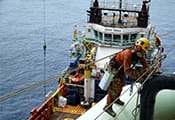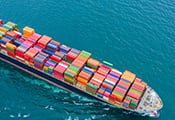1. Past Claims and Renewals:
When you renew your marine insurance policy, your insurer takes a close look at your claims history. If you've had a history of frequent or substantial claims, your insurer may decide to increase your premium. This is because a higher claims frequency suggests a greater risk associated with insuring your cargo. However, it's important to note that the impact on your premium may vary depending on the insurer and the nature of your claims.
2. Shopping for a New Policy:
If you're seeking coverage from a new insurer, your past claims may still have an influence on your premium, albeit differently. New insurers will consider your claims history when assessing your risk profile. While you might find somewhat lower premiums compared to your previous insurer, the extent of the reduction will depend on factors like the severity and frequency of your past claims.
Learn more about Marine Insurance
3. Defining Substantial Claims:
Whether your claims are considered substantial or minor is typically determined by the marine insurance company. It's advisable to communicate with your insurer to gain clarity on how your claims history might affect your premium. This way, you can better understand the criteria they use to evaluate your claims.
Other Factors Impacting Premium:
Aside from past claims, several other factors can influence the premium of your marine insurance policy:
- Nature and Value of Goods: The type and value of the goods you're insuring play a significant role in premium calculation.
- Route and Vessel Type: The specific route and the type of vessel used for transportation are considered when assessing risk.
- Inherent Risks: The nature of your products and any inherent risks associated with them can affect your premium.
- Destination: The final destination of your goods can impact your premium, especially if it involves areas prone to specific risks.
- External Factors: Events like strikes, riots, or civil commotion along the route can also influence premium rates.
- Additional Premium-Influencing Factors: Several other factors may lead to premium adjustments in your marine insurance policy:
- Natural Forces: The vulnerability of ports, especially those lacking adequate protection against natural perils, can impact your premium.
- Vessel Construction and Type: The quality and suitability of the vessel used for transportation are assessed by underwriters when determining premium rates.
- Vessel Age: The age of the vessel can be indicative of crew experience and skill level, which may influence premium rates.
- Policy Coverage: The extent of coverage outlined in your marine insurance policy can also play a role in premium calculations.
Case Studies
Here are a couple of real-world scenarios illustrating how past claims can affect your marine insurance premium:
Case Study 1
K.S Shipping: A fire damaged a vessel during a consignment transit, resulting in a substantial claim. When K.S Shipping sought policy renewal, the insurer considered the previous claim, leading to an increased premium.
Case Study 2
K.G Engineering: K.G Engineering, a Delhi-based engineering company, secured marine export insurance for a high-value consignment. The premium rates were determined based on various factors, including the value of goods, vessel type, and structural strength, showcasing the multifaceted nature of the premium calculation.
Conclusion
Past claims can indeed impact your marine insurance premium. Understanding the factors at play and communicating with your insurer can help you navigate these considerations effectively, ensuring that you make informed decisions when it comes to marine insurance in India.







































 Expert advice made easy
Expert advice made easy


